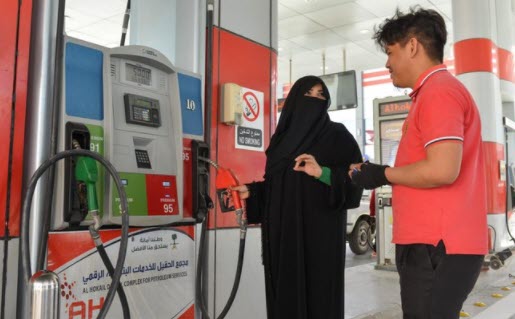Dubai, 20 September (Argus) — Saudi Arabia’s gasoline stocks fell to more than a six year low in July as a push to keep refinery run rates low coincided with an upswing in domestic gasoline demand with the easing of Covid-19-related restrictions on movement.
Gasoline demand was up 13pc to 475,000 b/d in July, from 421,000 b/d in June, according to latest data from the Joint Organisations Data Initiative (Jodi). But this was still well down on the 2019 average of 550,000 b/d.

The uptick in demand came as economic activity continued to rise following the end of all Covid-19-related restrictions on economic and commercial activities in mid-June.
[contextly_sidebar id=”C2zVS5OgJgDaF3p8lf0YLrRQFjiqZBB0″]
But gasoline inventories fell to a little above 25mn bl in July – its lowest level for more than six years. This is down 28pc versus 34.94mn bl in the corresponding month last year. Gasoline stocks were last lower in May 2014 at 24.86mn bl.
Total refinery output in July of all refined products, excluding LPG, meanwhile, stood at around 2mn b/d, according to Jodi data. While this was up 7,000 b/d from June, it was still down by around 17pc year-on-year, as the country worked to balance a growing middle distillate surplus. Jet fuel production, in particular, was hit, coming in at 45pc below year-ago levels.
This is because local refiners were forced to adjust their jet fuel yields amid weak jet fuel demand due to Covid-19. International flights to and from Saudi Arabia have been suspended since mid-March, with domestic flights only returning at the end of May following a more than two month hiatus.
Moreover, stocking jet fuel at this time proved uneconomic, again pushing refiners to reduce refinery runs. But as demand for other products – particularly gasoline – began to recover, refiners were forced to rely on stock draws to meet domestic requirements.
Inventories of middle distillates in July slipped 4pc to 46.28mn bl from 48.08mn bl one year earlier, with jet fuel stocks falling by 10pc over the same period. Jet fuel demand was up to 39,000 b/d in July versus 32,000 b/d, but still well down on the 2019 average of 103,000 b/d.
But domestic demand for jet fuel is likely to continue rising through the end of the year, following the restart of what Saudi Arabia described as “exceptional” flights in and out of the country on 15 September. Saudi Arabia said it expects to fully lift all its international travel restrictions in the new year.
Gasoil demand, meanwhile, rose to a nine-month high in July at 540,000 b/d as rising temperatures in the region drove an increase in the demand for power generation.
By Sarah Raffoul and Ieva Paldaviciute



